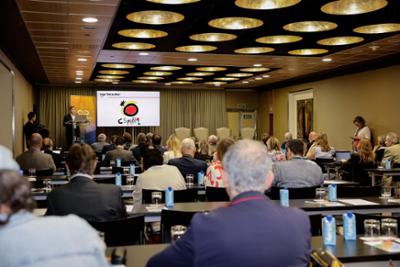

Sustainability and resilience to address the challenges of Spanish tourism
The Plan Turismo Litoral 2030 (Coastal Tourism Plan 2030), the roadmap promoted by Exceltur, proposes a new model for coastal destinations based on sustainability, resilience, digitalisation and a greater connection with residents and the environment. The plan can become a key initiative to address the social, climatic and economic challenges affecting Spanish tourism.
Experts from the tourism sector recently analysed in Madrid the structural challenges of the sun and beach model, which currently accounts for more than 80% of tourism in Spain, they said. Among its main conclusions, it highlights the necessary rehabilitation of destinations and the design of sustainable financing schemes as indispensable measures for the resilience of the industry. In this context, the Coastal Tourism Plan 2030, the roadmap promoted by Exceltur and supported by the Alliance of Sun and Beach Tourism Municipalities (AMT), which proposes a new model for coastal destinations based on sustainability, resilience, digitalisation and a greater connection with residents and the environment, has gained special relevance. This plan was highlighted during the conference as a key initiative to address the social, climate and economic challenges affecting Spanish tourism.
During the conference organised by the AMT, with the support of the Ministry of Industry and Tourism of Spain, more than 20 speakers from leading national tourist destinations and representatives of different industry institutions and associations emphasised the importance of applying tourism intelligence, translating data into decisions, and the transition towards a blue, conscious and differentiating tourism model, which combines the protection of the marine environment with the generation of authentic experiences to keep Spain on the path of competitiveness.
Some industry representatives such as the mayor of Benidorm, Toni Pérez, the mayor of Adeje, José Manuel Rodríguez Fraga, the president of the Tourism Council of the CEOE, Juan Cierco, and the president of the FEHM, Javier Vich, highlighted urban rehabilitation, digital transformation and the role of tourism intelligence.
The mayors of San Bartolomé de Tirajana, Marco Aurelio Pérez, and Lloret de Mar, Adrià Lamelas, took part in the debate 'Smart destinations, keys to leading the digital transformation', analysing the keys to leading the digital transformation of tourism and the opportunities offered by the analysis of large amounts of data and the application of 'tourism intelligence' to achieve more competitive and sustainable destinations. Also speaking during this debate was the president of SEGITTUR, Enrique Martínez, who defended digitalisation as a necessity to offer quality experiences and manage resources.
Blue tourism
The session 'Blue tourism, key to sustainable management', moderated by the director of the Climent Guitart Chair of the University of Girona, Ana Garriga, focused on the relationship between tourism and marine and coastal protection. Jorge Rubio, Deputy Assistant Director of Knowledge and Tourism Studies at Turespaña, highlighted in his speech '40 years positioning the Spain tourism brand' the efforts made to update the brand and adapt it to changes, seeking to strengthen the country's image, diversifying and giving value to the main product, which is sun and beach'. He also gave a preview of some of the key elements of the next campaign, which will focus on the concept of 'slow travel' and on geographical, seasonal and motivational diversification.
Public-private collaboration and its challenges was the subject of a debate moderated by the director of Hosteltur, Manuel Molina, under the title 'The same destination: public-private collaboration as a driver of tourism', and which, on behalf of the leading sun and beach tourist destinations, was attended by the mayors of Torremolinos, Margarita del Cid, and Arona, Fátima Lemes, as well as the managing director of Spring Hotels Group, Miguel Villarroya. Participants agreed that the private sector is essential for destinations to address their transformation and revitalisation. Among the challenges, they pointed to the need to share data and to specify aspects such as the promotion and development of infrastructures.
At the closing ceremony, the Spanish Secretary of State for Tourism, Rosario Sánchez Grau, stated that "tourism is a phenomenon closely linked to the territory and proof of this are the tourism sustainability plans at the destination, through which the eight municipalities of the AMT alone are implementing projects worth almost 40 million euros for the regeneration of urban space and investments in infrastructure to improve the product". She also appealed for to the need to create "A conceptual framework to have a homogeneous umbrella of where we have to focus the tourism model in each of the territories".





